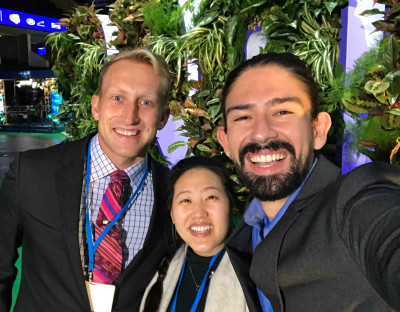The COP26 conference held in Glasgow, Scotland ended on Nov. 13 to a collective global groan. There is general agreement that the article produced from this conference, known as the Glasgow Climate Pact, does little to get us closer to the mythical goal of limiting global warming to 1.5°C, or anything else for that matter.
Whether its ability to live up to expectations was in part due to the ongoing pandemic, or the fact that haggis, a traditional Scottish savory pudding containing “sheep’s pluck,” lacked the culinary chops to smooth over negotiations as easily as Parisian pastries remains a mystery. What is unsurprising however, is the end result.
COP26 was a failure, and for progress to be made, this failure must be recognized. Weak commitments, such as the goal to “phase-down” rather than “phase-out” coal, seem particularly hollow when viewed in contrast with the reality around us—climate change is here and it’s happening faster than we’ve ever expected.
We should be concerned about the lack of urgency within global politics regarding climate change. But that does not mean we should give up hope. What major headlines fail to capture is that while global leaders came up short, local and municipal policymakers are still working tirelessly to push aggressive climate change agendas. Perhaps this is because though climate change is a global issue, its effects are intimately felt at the local level.

I was inspired by the passion with which many local leaders from around the globe spoke about ambitious climate change actions that were being taken, despite a lack of federal funding, or in extreme cases, direct opposition from the current party in power at the federal level. Underneath the simmering discontent for global politics at COP26, I found a hotbed for constructive discussion between local leaders and researchers from around the world, sharing knowledge and discussing the problems their communities face under the climate change threat.
One of many initiatives launched at COP26 is the Adaptation Research Alliance which aims to bring together researchers and local leaders to address adaptation problems at the community level, highlighting the importance of addressing local issues while emphasizing the importance for communities to be able to share knowledge globally. Sitting down with San Diego Mayor Todd Gloria at COP26, it was evident that the local ambition I’ve described above is thriving in our hometown. Mayor Gloria clearly understands the impact of top-tier research institutions such as Scripps Institution of Oceanography in generating cutting-edge climate change knowledge and solutions, but he is also acutely aware of the critical issues such as housing shortages that limit more aggressive climate action within our region. It’s a lot easier to “think green” when you live in affordable housing near your place of work.
Climate change requires global initiatives, however, innovative solutions can start at the local level. While it is disheartening to see global politics getting in the way of progress, we should also recognize the efforts being made within our community and the profound impact local decisions can make.
Chase James is a sixth-year student co-advised by marine ecologist Andrew Barton and microbial oceanographer Andrew Allen. His research focuses on the spatio-temporal patterns and processes that shape marine microbial communities off the coast of California.
Scripps Oceanography would like to thank Logitech for sponsoring the student delegation that attended COP26.
About Scripps Oceanography
Scripps Institution of Oceanography at the University of California San Diego is one of the world’s most important centers for global earth science research and education. In its second century of discovery, Scripps scientists work to understand and protect the planet, and investigate our oceans, Earth, and atmosphere to find solutions to our greatest environmental challenges. Scripps offers unparalleled education and training for the next generation of scientific and environmental leaders through its undergraduate, master’s and doctoral programs. The institution also operates a fleet of four oceanographic research vessels, and is home to Birch Aquarium at Scripps, the public exploration center that welcomes 500,000 visitors each year.
About UC San Diego
At the University of California San Diego, we embrace a culture of exploration and experimentation. Established in 1960, UC San Diego has been shaped by exceptional scholars who aren’t afraid to look deeper, challenge expectations and redefine conventional wisdom. As one of the top 15 research universities in the world, we are driving innovation and change to advance society, propel economic growth and make our world a better place. Learn more at ucsd.edu.